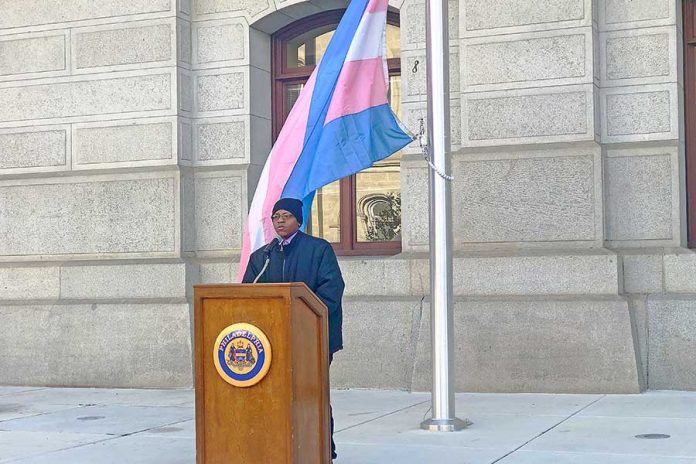
On Nov. 20, transgender and nonbinary people — and our allies — across the world come together to honor those murdered due to anti-trans violence. This year marks the 20th since a group of people in San Francisco and another group in Boston decided to take to their respective streets, launching the Transgender Day of Remembrance.
TDoR, as it is commonly known, has mostly remained the same over the past 20 years, though honoring the day has ventured down some new avenues.
In some locales, “and resilience” has been added to the name, acknowledging that there are, indeed, many of us who have survived and who continue to thrive. It’s good to acknowledge that we are more than our deaths.
Also, many have expanded the occasion to a week of events, under the name “Transgender Awareness Week.” This, in turn, has grown to “Transgender Awareness Month.” I have less love for this, but only from a semantic side. We need much more than the awareness that we exist in this world, no matter what length of time is applied.
Some TDoR events opt to go beyond the understanding that this is an event focused on anti-transgender violence. They may add in cases of death by suicide to their tally, a choice that I can empathize with — but that I opt not to include on the lists, typically.
Some, too, add in just about every transgender death they can find, perhaps out of a misunderstanding as to what TDoR is about — again, anti-transgender violence — or perhaps to inflate the numbers on an issue when, quite frankly, one death is too many. Passing away after a long, violence-free life is not what TDoR is about.
That said, I don’t tend to tell people what they can and cannot do when it comes to TDoR. I may have been one who helped get the ball rolling, helping to create an event honored globally, but I don’t like to think of it as something that I or anyone need to control. People grieve in different ways, and it would be wrong to force my personal views onto the whole.
Even if, I’ll admit, I have.
I have to acknowledge some uncomfortable truths when it comes to TDoR — those truths that I often find myself pondering. I often feel that as a white trans woman, I should not be a spokesperson for a contagion that predominantly preys on Black trans women. It’s not that I wallow in “white guilt,” per se, but I want to remember to center voices other than my own, and try to use my privilege constructively.
I also often consider the ways that TDoR may have framed the trans rights struggle as a whole. With what I alluded to above, there’s a lot of living we all do. We are resilient. We do — when given a chance — thrive.
On Nov. 20, transgender and nonbinary people — and our allies — across the world come together to honor those murdered due to anti-trans violence. At the end of the night, our candles are extinguished, our signs and banners put away, and we go back to living our lives.
One day after TDoR, I want you to ask yourself a simple question: What are you doing today to try and make the next TDoR a day when fewer names are read, and instead, more of us are thriving?
On the next Transgender Day of Remembrance, we may have a new president in the White House, and that person may be willing to stop the horrible rollbacks of our rights that have happened under President Trump. It’s also plenty likely that races from those in Congress to your local school board will have been decided, and each of those elections may affect us. What will you do to help elect people who will serve the needs of trans and nonbinary folks?
We also live in a time where misinformation about transgender people runs rampant. We still live with unfounded specters of transgender restroom predators. Lately, too, we’ve heard this absurd notion that men are trying to infiltrate women’s sports under the guise of transgender rights, with South Park making an even deeper mockery of it all. This fear-mongering can lead to violence against trans bodies, and it makes life harder for us. What will you do the day after TDoR to help educate and show that these fears are not rooted in reality?
Right now, there are young — and not-so-young — transgender people who may be coming to terms with their transness in this awful world of 2019. They may be facing homelessness after their families kick them out or harassment in their schools or workplaces or challenges that could lead to their deaths. What steps will you take, on Nov. 21 and every other day, to build a better world for them?
This is the challenge I put forth to you.
On Nov. 20, transgender and nonbinary people — and our allies — across the world come together to honor those murdered due to anti-trans violence. We remember our dead, we honor our resilience, and we rededicate ourselves to creating a better world wherein people are not killed because someone has an issue with transgender or gender-nonconforming people.
I won’t tell you how to honor our dead, but please heed this: one day after, we must show that we will continue to fight like hell for the living. It is the least we can do.
Gwen Smith remembers. You can find her at www.gwensmith.com.
